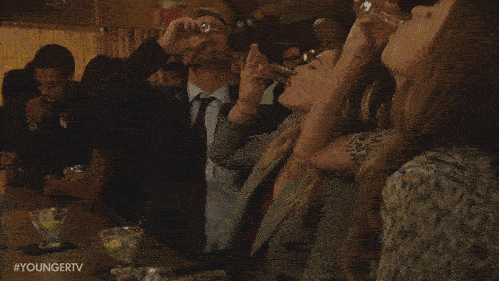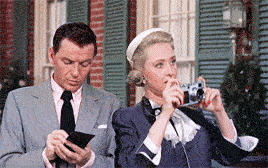Be more mindful the next time you pose for your holiday pictures. In some countries, the seemingly harmless, touristy peace sign can be a middle finger equivalent to a local. While we love jetting off to foreign cities to quench our insatiable wanderlust, it is important to avoid social blunders that might potentially raise a few disapproving eyebrows.
Blending in with the locals is never easy, and with travel season in full swing, here’s a quick list of social faux pas to avoid at some of our favourite holiday destinations – don’t be that offensive and ignorant tourist.
1. Chopstick-to-chopstick (Japan)

While we may be aware of basic Japanese etiquette like taking off your shoes before entering a house to how much the locals value silence on public transport, it is also crucial to know that passing food to another person, chopstick-to-chopstick, is a total no-go at the dining table. In Japan, this is akin to a funeral custom, where cremated remains get ceremoniously transferred into an urn. Licking the ends of your chopstick is also considered distasteful, no matter how divine the teriyaki sauce is.
2. Never pat someone on the head (Thailand)

Thailand has always been a top destination among Singaporeans when it comes to fuss-free and affordable getaways. Regardless of whether you are bargain hunting in Bangkok or getting your tan on in Phuket, keep in mind to refrain from touching or patting anyone on the head. Yes, not even the most adorable of children. In most Buddhist countries, the head considered sacred and touching it can instigate a fair share of trouble.
3. All or nothing (France)

When It comes to picking up the tab in a French restaurant, the onus falls on one person only. Spilt bills are considered unsophisticated in France – never ask for that. If you happen to be dining with a group of friends, always sort it out amongst yourselves, if you have to.
4. The peace sign has a double meaning (UK, Australia, South Africa)

In the UK, Australia and certain parts of South Africa, throwing up two unsuspecting fingers to signify peace can possibly land you in hot water with the locals. This harmless hand gesture we are used to does not always translate well in certain parts of the world – a reverse peace sign is as good as giving someone the finger.
5. Do not cross your fingers (Vietnam)

Another hand gesture that carries an entirely different meaning in Vietnam would be the act of crossing your fingers, a sign that is inextricably associated with luck – or so we thought. In Vietnam, we can’t guarantee that crossing your fingers will bring you luck, but we can promise that it is sure to provoke an unwanted reaction. Crossed fingers are extremely vulgar as it is said to resemble a woman’s genitals, so never direct this at another person.
6. The art of refusing and accepting a gift (South Korea)

This one is slightly hard to wrap around our heads. In South Korea, being wishy-washy can actually be a virtue. It is an unspoken custom to never accept a gift too easily, or you can risk giving the impression of being self-entitled. When offered a gift, first respond with a speechless or undeserving expression on your face. When they insist again, refuse politely and retort that they do not have to do this. Finally, on the third attempt, pause for a few seconds before humbly accepting the gift with both hands. Well, if you insist.
7. Cappuccino is not part of all day breakfast (Italy)

The Italians take their coffee seriously, and ordering a cappuccino after breakfast is a borderline insult to their strong coffee culture. Cappuccino is deemed a staple Italian breakfast component – never after an after-meal beverage. It isn’t the biggest faux pas, just simply un-Italian. Do not be taken aback if the waiter refuses to serve you after 10 a.m.
8. Keep your thumbs down (Greece, Italy, Middle East)

So you’ve fallen in love with the moussaka on your table at first bite, and your Greek waiter comes along to check on you. Never, ever, give the thumbs up. Compliment the food in simple English, or simply flash your biggest smile and nod approvingly should language be a barrier. Giving a seemingly innocent thumbs up is like saying “I loved the moussaka, but screw you” – it is always wiser to keep your thumbs safely tucked away when on foreign soil.
9. You are considered cheap if you don’t tip (U.S.)

Tipping is not entirely rocket science to us, but it still remains an uncommon Asian practice nonetheless. However, should you decide to visit the States, leaving a tip is customary. The biggest dilemma you will encounter is how much to actually tip. For table service, 15-20% of your total bill is a safe amount, while 10% is decent for a bar meal. If you are just looking to get a beer, $1 per bottle will suffice. It is also an unspoken rule to tip your cab driver at least 10-15% of the total fare. Bottom line is, not tipping for any form of service is a huge cultural no-no in the great West.
10. Always say yes to a toast (Russia)

Can’t hold your liquor to save your life? Tough luck. Unless you don’t mind eternal social exclusion, always say yes when offered a toast, for it is a gesture of friendship and camaraderie in Russia. The toast is most often with a shot of vodka, and turning it down is essentially the equivalent of refusing a handshake. Remember to down it gregariously in one gulp, and never attempt to dilute it.
11. Basic Tube etiquette (London)

Travelling on London’s Underground can be pretty stressful for a first-timer. Nothing screams obnoxious tourist like obstructing gantries because you haven’t got your oyster card ready, or disrupting commuters who frankly see this underground journey as sacred quiet time. Loud music, animated conversations or any form of eye contact will not sit well with them. If you wish to reman stationary on the escalator, always keep to the right, or you may find yourself attracting death glares for blocking the rapid, human traffic flow of city dwellers.
12. Not today, Instagram (Native Americans, Australian Aborigines)

Photographs may be a way for us to immortalise a golden moment, but to many native Americans and Australian aborigines, it is also tantamount to “stealing one’s soul”, imprisoning it within the digital image. Do not get carried away with excitement and begin snapping away aggressively – always respect the traditions and wishes of the natives. While younger generations are slowly warming up to the modern idea of photography, it is always vital to seek permission, or simply put your devices away and commit the experience to memory.
13. Forbidden Three T’s (China)

China’s social etiquettes draw parallel to our local Chinese faux pas here. ‘4’ is a doomed number, and sticking your chopsticks in your rice bowl is a mortifying dining taboo. We all know. However, it is also worth noting that the Three T’s (Taiwan, Tibet and Tiananmen) is a highly touchy subject in China and should best be left out of any conversations, especially with the elders.
14. Drinking Tea (UK)

Drinking tea proper in the UK could well have its own comprehensive guidebook. When it comes to this quintessential British drink, some basic rules do apply. Avoid clinking the sides of your cup with the spoon when stirring, and always place your spoon on your saucer behind the cup to the right of the handle. Never, ever cradle the cup in your hands and avoid raising your little finger – this is a grave social faux pas.
in Roundup



